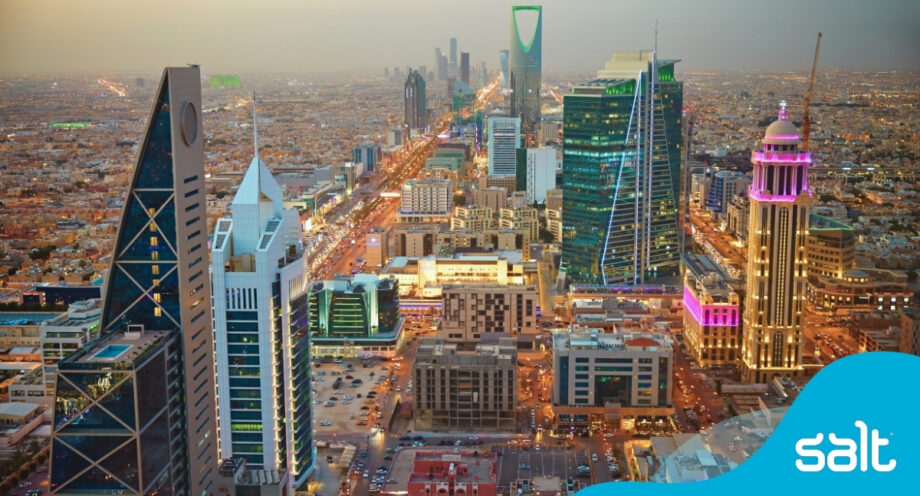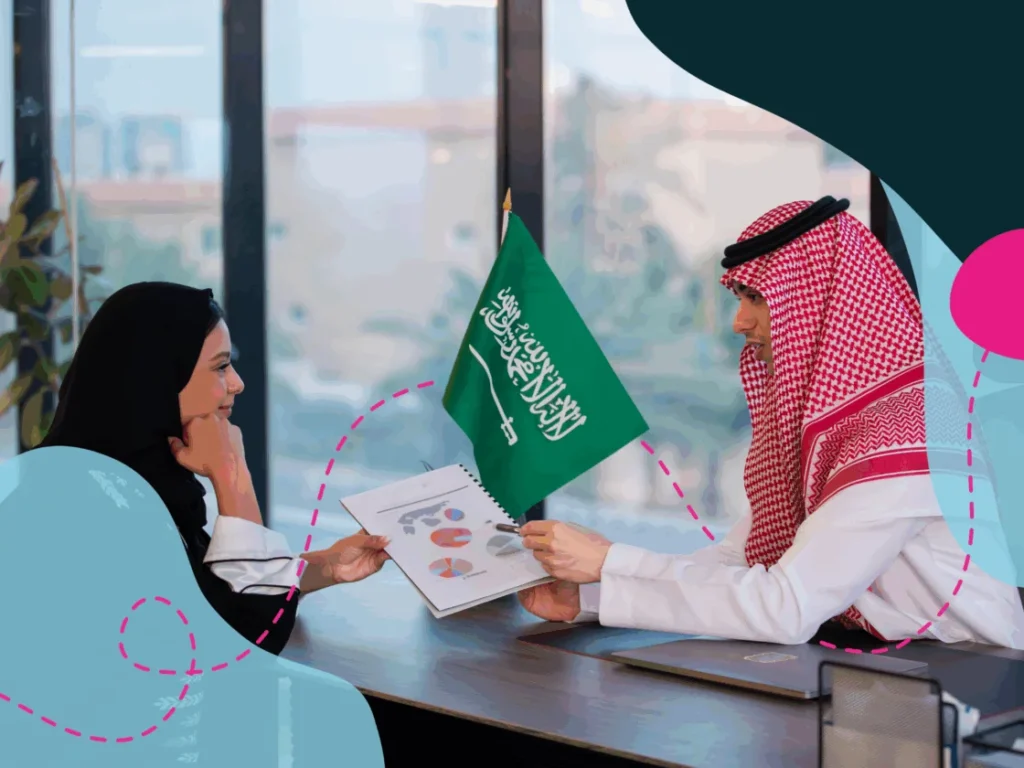Fintech trends shaping Saudi Arabia and the Middle East
Richard Smith shares his key takeaways from Money20/20 Middle East in Riyadh, Saudi Arabia. In this report he breaks down the strategic shifts redefining fintech in the Middle East and discusses the talent powering the future of fintech.

A report on Money20/20 Middle East 2025
I joined more than 38,500 other attendees in Riyadh, where global fintech leaders, investors, and regulators came together to explore the future of finance. Over three days, the conversations covered everything from AI-driven banking and embedded finance to digital payments and regulatory innovation.
What stood out to me at Money20/20 Middle East 2026 was the confidence in the room, a clear signal that the region isn’t waiting to follow global fintech trends; it’s ready to lead them.
Key takeaways from the event
- Embedded finance everywhere:
Money20/20 confirmed that embedded finance has moved from trend to expectation. Whether it’s payments inside apps, lending at the point of need, or banking-as-a-service, financial services are increasingly integrated into daily experiences. Customers now assume finance will be frictionless and built into the platforms they already use. - Regulators leaning in:
The GCC’s regulatory environment is actively enabling innovation. Open-banking frameworks, digital-only licences, and expanded sandbox programmes are not slowing fintech down – they are accelerating it. The relationship between regulators and innovators is unusually collaborative, creating fertile ground for scale. - Public and private transformation:
Fintech growth in MENA is not being driven by the private sector alone. Public pensions, social insurance programmes, and sovereign wealth funds are also pushing major digital transformation initiatives from the top of the economy. The result is a dual engine of innovation, with startups driving from the bottom up and institutions driving from the top down. - Data and AI taking centre stage:
AI is no longer a bolt-on; it is the backbone of modern financial services in the region. From KYC and compliance to customer experience and product development, AI is embedded in every stage of the lifecycle. What was once “nice to have” is now essential infrastructure for scale.
Strategic shifts redefining fintech in the Middle East
Scaling AI with purpose
AI is being rapidly deployed across fraud detection, onboarding, compliance, and customer journeys. Saudi Arabia is investing heavily in these systems, with regulators aligning infrastructure and governance to support real-world use cases rather than just proof of concepts.
Embedded finance becomes infrastructure
Platforms like SILQFi launched Omni, embedding POS operations, procurement, credit, and payments into merchant workflows. This is more than just adding finance; it’s rewriting how SME finance and operations are fused.
Policy as a growth engine
Regulators are providing sandbox licences, digital-banking frameworks, and clearer open banking mandates. This active, enabling regulation is giving fintech companies room to scale across borders with more certainty.
Capital is abundant; talent is the bottleneck
Take Tamara, the Kingdom’s first fintech unicorn, which secured a US$2.4 billion facility at Money20/20, led by Goldman Sachs, Citi, and Apollo, to expand into new credit and payment products. The funding is there; the real challenge is building teams that can turn capital into sustainable global businesses.
Cashless society in action
Saudi Arabia’s retail sector is already majority cashless, and Money20/20 marked the Saudi debuts of Google Pay and Alipay+. Google Pay and Google Wallet were introduced locally through Al Rajhi Bank and Riyad Bank, cementing the Kingdom’s position as one of the fastest-moving payments markets in the world.
The talent powering fintech’s future
As I listened to the panels and conversations at Money20/20 Middle East 2025, one theme kept coming through: fintech’s future will be determined by people as much as technology. AI, digital payments, and open banking may set the pace, but they only become reality when skilled teams turn ambition into execution. That was the common thread running across every theme at the event.
AI and data science skills are in short supply
AI was everywhere at Money20/20, from fraud prevention to customer experience. The race is on for machine learning engineers and data scientists who can turn bold ambitions into scalable, trusted systems.
Cross-functional expertise for embedded finance
As finance weaves into platforms, demand is rising for product managers, API developers, and UX designers who can bridge user needs, tech build, and regulatory compliance.
Compliance and regtech specialists are rising in demand
Regulators were active participants in Riyadh, showing that compliance is now a growth enabler. The winners will be those embedding regtech to scale faster while staying trusted.
Leadership and scale-up talent are scarce
Capital is flowing, but not leadership maturity. Startups need operators who’ve navigated hypergrowth, scaled across borders, and built resilient cultures—a gap that will decide who sustains momentum.
Payments engineers and security experts are indispensable
With Saudi Arabia already majority cashless and global wallets launching, demand for payments engineers and fraud specialists is surging to keep infrastructure secure, seamless, and trusted.
At Money20/20 Middle East 2025, one thing was clear: technology may set the pace, but people will decide the future of fintech.
At Salt, we see this every day: fintech innovation is only as strong as the people behind it. Our role is to help companies across MENA and beyond secure the engineers, designers, regulators, and leaders who turn ambition into execution. Because the businesses that get talent right today will be the ones creating futures in fintech tomorrow.



